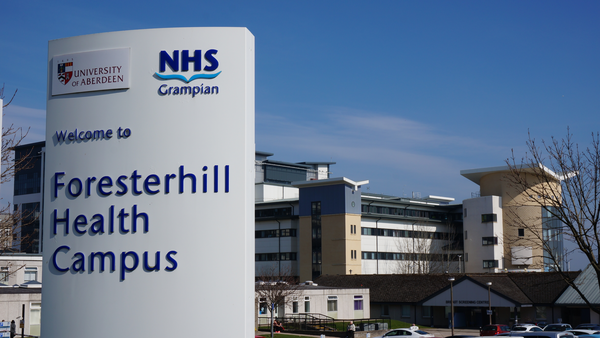Christiana Ekezie

Are you seeking postgraduate training that focuses on your employability, equips you with knowledge and skills to address complex and multidimensional global health issues, and enables you to make professional contributions towards positive health and social change?
On our MSc Global Health and Management programme, you will gain knowledge and understanding of established and emerging concepts, issues, theories and practices in global health and management studies. You will develop appreciation of how these intersect with broader social, economic and political factors, and develop skills to critically engage with these debates. The aim is to develop multidimensional views for more complete impacts in the field.
You will learn about health and social research methods, global health and global citizenship, health systems and policy, and management studies. You will have opportunities to work in professional environments in the health and development sector in the UK and overseas, applying taught content in real world settings and conducting projects of practical significance. With supervision from world-class research academics, students also develop deepened knowledge into current research and methodological development in selected area(s) in a research environment.
This programme is available to start in September or January.
*Students who would like to specialise in a research focused career, for example, through PhD or research jobs, may find that the September cohort is better aligned with their needs. The January cohort is more practice-based and has a stronger alignment with non-research intensive jobs such as working in the community or policy development, and our January start students have the option to enrol on extended work-based placement in their second semester. They can also extend your learning by evaluating the existing policies and understanding their effects on global or public health practice. We recommend that students check the course details of September and January entries to make an informed decision.*
We will endeavour to make all course options available; however, these may be subject to timetabling and other constraints. Please see our InfoHub pages for further information.
Further Information about tuition fees and the cost of living in Aberdeen
Self-funded international students enrolling on postgraduate taught (PGT) programmes will receive one of our Aberdeen Global Scholarships, ranging from £3000 to £8,500, depending on your domicile country. Learn more about the Aberdeen Global Scholarships here.
To see our full range of scholarships, visit our Funding Database.
The overall curriculum is designed with an integrated approach to teaching and learning in mind. Students participate in formal lectures, small group work, seminars, student presentations, and discussion groups. Throughout, the programme also provides training in mobile and digital technologies and social media. External experts are also regularly invited to provide specialist expertise. Many lectures are recorded and can be viewed again when required.
The MSc makes the most of hands-on learning to enable repeated exposure to evidence-based practice using real life examples. Some of the teaching methods employed in the programme include:
The University’s dedicated, interdisciplinary team of experienced researchers tutor you and provide on-going support. Peer support will develop throughout the course(s) as engagement with students from other countries and disciplines is actively encouraged.
Much of the teaching on this course is participatory and students are expected to consolidate all taught content by completing related tasks and activities and engaging in independent study in their own time.
Each course has its own continuous assessment criteria based on the progress of practical and course work as well as a written degree examination. Progression to a research project is dependent on performance in the individual courses. The MSc project is assessed with the submission of a thesis and viva examination.
A second (2:2) class Honours degree or equivalent, usually in a health-related honours undergraduate degree (medicine, midwifery, nursing, public health, pharmacy). We also consider applications from students with a pure science, social or management science first degree and who have a keen interest in health.
The information below is provided as a guide only and does not guarantee entry to the University of Aberdeen.
In recent years we have had students from backgrounds including medicine, midwifery, nursing, public health, health/medical research, pharmacy, public administration, management.
Please check the In My Country pages to find out if your degree is equivalent.
Please enter your country to view country-specific entry requirements.
To study for a Postgraduate Taught degree at the University of Aberdeen it is essential that you can speak, understand, read, and write English fluently. The minimum requirements for this degree are as follows:
IELTS Academic:
OVERALL - 6.5 with: Listening - 5.5; Reading - 6.0; Speaking - 5.5; Writing - 6.0
TOEFL iBT:
OVERALL - 90 with: Listening - 17; Reading - 21; Speaking - 20; Writing - 21
PTE Academic:
OVERALL - 62 with: Listening - 59; Reading - 59; Speaking - 59; Writing - 59
Cambridge English B2 First, C1 Advanced or C2 Proficiency:
OVERALL - 176 with: Listening - 162; Reading - 169; Speaking - 162; Writing - 169
Read more about specific English Language requirements here.
You will be required to supply the following documentation with your application as proof you meet the entry requirements of this degree programme. If you have not yet completed your current programme of study, then you can still apply and you can provide your Degree Certificate at a later date.
Eligible self-funded post graduate taught (PGT) students will receive the Aberdeen Global Scholarship. Explore our Global Scholarships, including eligibility details, on our dedicated page.
Aberdeen Global ScholarshipsStudents are provided with opportunities to develop portfolios of work during the programme that relate to interests, strengths, previous training and experience, and career aspirations. The underlying assumption is that finding personal strengths and areas of interest is the key to unlocking a rewarding career.
As part of the programme, we offer an elective Work-Based Placement (WBP) course, in which students work with external health and development organisations in the UK and overseas. Students have been placed in research, advocacy and clinical organisations in Kenya, South Africa, Uganda, the UK and Zimbabwe. Placement students gain a unique experience, professional connections, transferable skills and a stand-out CV. A short film on placements produced by recent graduates can be viewed here.
Graduates of the MSc Global Health and Management programme establish careers in a range of health and development organisations and institutions, these include:
In the UK we work with Action on Smoking and health (ASH), The International Union Against TB and Lung Disease, and the National Health Service (NHS) in Scotland. Students take advantage of our collaborators’ facilities for research projects or placements.
International partners include Diva Medical Centre, Uganda; Training and Resource Support Centre, Zimbabwe; Naretu Girls and Women Empowerment Programme, Kenya; MRC/Wits Rural Public Health Unit (Agincourt), South Africa.
The programme will be delivered by an experienced, multidisciplinary team of internationally renowned researchers in global health and management.
You will be taught by a range of experts including professors, lecturers, teaching fellows and postgraduate tutors. Staff changes will occur from time to time; please see our InfoHub pages for further information.

The Foresterhill Health Campus is one of the largest clinical complexes in Europe which includes the Medical School, large teaching hospital, the Institute of Medical Sciences and the Rowett Institute.

Our Business School has an international faculty consisting of over 40 research active members with world leading academic credentials and strong professional links with the business community.
Find out more